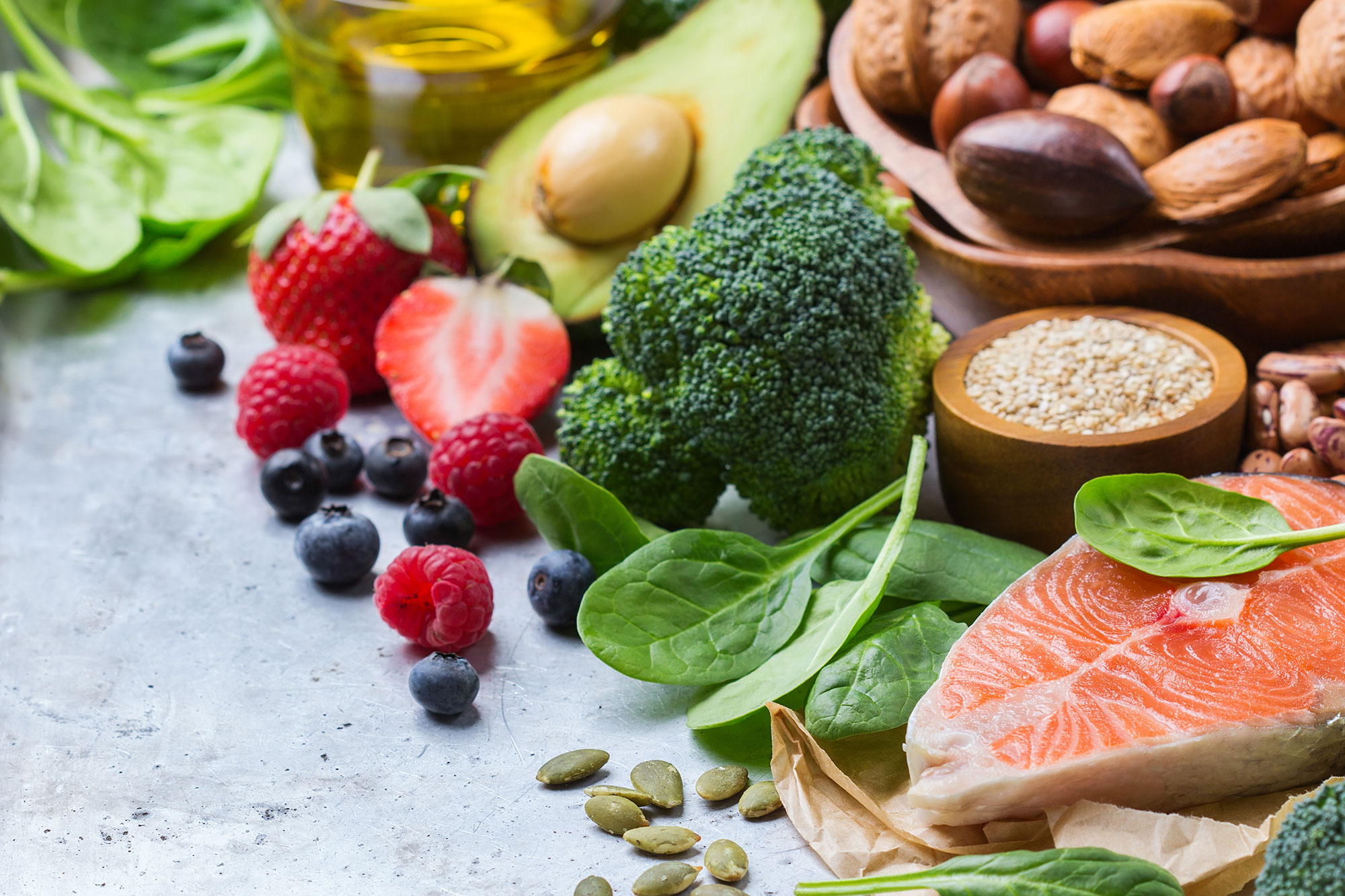
What the Heck is Choline?
In My Top Five Food Trends for 2020 blog, I predicted foods for healthy aging will continue to gain momentum this year. We’ve been hearing more about choline and its role for healthy brain development and maintenance. So, what the heck is choline? It is an essential water-soluble micro-nutrient that is important for brain development, the nervous system, muscle movement, metabolism, DNA synthesis, cell communication, cell membrane structure, and liver function. Let’s explore more about what the heck is choline.
Choline & Health
Although choline is made within the liver, it is not found in abundance within the body. Therefore, we’re required to consume via foods or supplements to avoid the risk of deficiency. It is not considered a vitamin or mineral but has some similarities to B-vitamins. Adult men require 550 mg of choline per day and adult women 425 mg per day (recommendations increase if pregnant or lactating).
Choline rich foods include eggs, beef & chicken livers, cod fish, and salmon. Other foods with choline include milk, broccoli, cauliflower and soybean oil. Choline can also be found in supplement form as choline bitartrate and phosphatidylcholine. Lecithin is used to supplement choline.
 Brain Health
Brain Health
Choline is an important micronutrient for brain development from pregnancy to the older adult. Animal model research has shown choline may be useful in the prevention and treatment of Alzheimer’s disease (1). It is protective against Alzheimer’s using two different mechanisms.
The first mechanism is through choline’s ability to reduced homocysteine, a neurotoxin that can lead to Alzheimer’s disease.
The second mechanism is choline’s ability to down-regulate the activation of microglia, an essential cell required for the clearing of brain debris that can also in excess lead to brain inflammation, and subsequently neuronal death and Alzheimer’s disease. Human clinical trials are required to further prove choline’s ability to prevent and treat Alzheimer’s disease.
 Fitness & Heart Health
Fitness & Heart Health
Choline may improve stamina during endurance-based exercise, which can subsequently improve health outcomes related to endurance exercise such as cardiovascular health. From a 2016 study, it was shown that there is a potential for improvements in endurance if an activity is strenuous and prolonged when choline is supplemented, as circulating choline is decreased during this type of activity (2).
Similarly, endurance can be compromised if individuals are deficient in choline as it is required for neurotransmission, lipid transport, cell-membrane signalling and methyl-group metabolism. Unfortunately, research published in 2016 demonstrated that excess choline can be harmful to cardiovascular health (3). Therefore, further research is necessary to determine the dose response relationship while minimizing adverse side effects.
Caution
When consumed in excess, such as in the form of a supplement, choline can cause adverse side effects including gastrointestinal distress, vomiting, diarrhea, sweating and a fishy body odour (4). Also, excess choline has been linked to increased cardiovascular disease risk (3). There is some research to suggest that high dietary intake of choline can increase the risk of colorectal cancer (4). However, when consumed within recommended amounts, choline has been deemed as safe. Therefore, choline consumed from food sources may be the best alternative to ensure that levels are adequate to prevent deficiency without possible side effects.
What’s next?
Remember no single food or ingredient is a silver bullet. A lifestyle filled with healthy habits including a balanced dietary pattern, exercise and restful sleep is the best approach for long-term consistent, mind body health & healthy aging.
Jane and her team would love to assist your company to strategize about food trends or speak at your upcoming event! Click here to contact Jane.
References:
- Velazquez R, Ferreira E, Winslow W, Dave N, Piras IS, Naymik M, et al. Maternal choline supplementation ameliorates Alzheimer’s disease pathology by reducing brain homocysteine levels across multiple generations. Mol Psychiatry [Internet]. 2019 Jan 8 [cited 2019 Jul 16].
- Penry JT, Manore MM. Choline: An important micronutrient for maximal endurance-exercise performance? Int J Sport Nutr Exerc Metab. 2008;18(2):191–203.
- Zheng Y, Li Y, Rimm EB, Hu FB, Albert CM, Rexrode KM, et al. Dietary phosphatidylcholine and risk of all-cause and cardiovascular-specific mortality among US women and men. Am J Clin Nutr [Internet]. 2016 Jul 1 [cited 2019 Jul 16];104(1):173–80.
- Choline: Uses, Side Effects, Interactions, Dosage, and Warning. Webmd.com. [Internet] [cited 2019 Jul 16].
Copyright © 2020 Jane Dummer | All Rights Reserved
